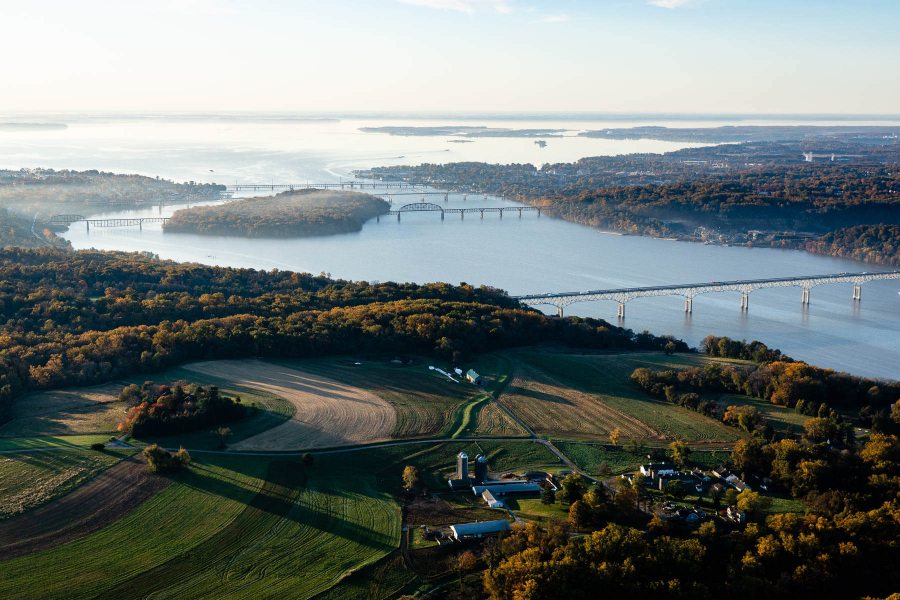Innovative Nutrient and Sediment Reduction Grants Program

This grant program is currently closed.
The Chesapeake Bay Innovative Nutrient and Sediment Reduction Grant Program awards grants of $200,000 to $1 million to support innovative, sustainable and cost-effective approaches that dramatically reduce nutrient and sediment pollution to the Chesapeake Bay and its local waterways.
Innovative Nutrient and Sediment Reduction grants are awarded on a competitive basis to projects that target and reflect the region’s diverse landscapes and sources of pollution that exist throughout the Bay watershed.
Priorities for funding include:
- Field-scale demonstrations of innovative technologies, conservation practices and best management practices (BMPs) that have the potential to significantly reduce excess nutrient loads.
- Demonstrations of the most effective and efficient strategies for implementing nutrient pollution reductions in targeted small watersheds.
- Water quality trading demonstrations and other market-based strategies to reduce nutrient pollution.
- Demonstrations of strategies that overcome barriers to adoption of the most effective and efficient BMPs and conservation practices.
The Innovative Nutrient and Sediment Reduction Grants Program is administered by the National Fish and Wildlife Foundation (NFWF) in cooperation with the U.S. Environmental Protection Agency's Chesapeake Bay Program. NFWF produces an annual report of the Chesapeake Bay Stewardship Fund to summarize the collective impact of the grant investments made through both the Innovative Nutrient and Sediment Reduction and Small Watershed Grants programs.
Innovative Nutrient and Sediment Reduction Grants Projects
Innovative Nutrient and Sediment Reduction Grants projects can be located through an interactive National Fish and Wildlife Foundation map. NFWF has supported thousands of conservation projects in the United States and abroad since 1985. In total, NFWF’s Chesapeake Bay Stewardship Fund (which includes both Innovative Nutrient and Sediment Reduction and Small Watershed Grants programs) has awarded more than $125 million to support approximately 964 conservation projects throughout the watershed, while leveraging a total of $233 million in matching funds.
